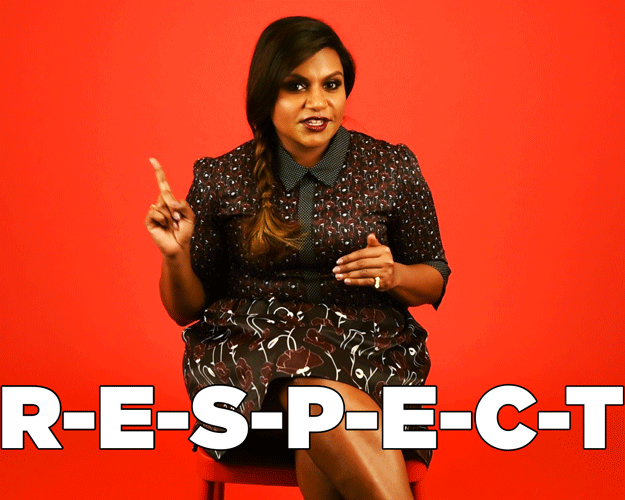
There really is no tellin' how much happier most of us would be if we spent more time in the pursuit of what we need than what we want. Personally, I think part of the reason why we struggle in this particular area is the lines tend to blur far too much between the two. Do you need more money or do you want it? Do you need another car or do you want it? Do you need a man or do you simply want to be in a relationship with one?
Wait. Before you answer those questions, let's define the difference between a need and a want. A writer by the name of Erin Huffstetler breaks it down pretty darn well. According to her, a need is something we have to have while a want is something that we would like to have. In other words, a need is something that is essential while a want is merely a preference.
OK, with that kind of foundation laid, let's get into some things that I've heard a lot of men say that they need. I've heard it in counseling sessions. I've heard it from male friends. I've heard it on YouTube videos and podcasts. I've read it in books and on blogs. Not only have I heard men consistently say that they need the things that I'm about to share with you, I've also heard that the source of their frustration in relationships is the fact that they keep not getting them. Even when they express them.
As you check out this list, continue to keep in mind that 1) a need is not a desire; it's more like a requirement and 2) it's really hard to remain in a relationship, let alone satisfied in one, if a person is not getting what they need.
Is your man getting these following needs met? If you're not sure…ask him.
Confidentiality

Something that I deal with in marriage counseling sessions a lot more than I would've ever thought I would is husbands who wish their wives would stop talking so much. I don't mean talking in the sense that, reportedly, women use more words than men do (for the record, some say that's the gospel truth while others say it's a myth). I mean they wish their wives didn't think that everything that happens within the four walls of their home was something their mom and/or sister and/or bestie had to hear about.
Something that is beautiful about exclusive relationships is there should be a sense of confidentiality in them. One definition of confidential is "having another's trust or confidence; entrusted with secrets or private affairs" and another is "indicating confidence or intimacy". It's kind of ironic that a lot of women wish their men would open up more, while their man is like, "I would if you quit telling so much of my business and our business." Hmm.
Respect

wizardofhomes.files.wordpress.com
If you've never heard of Dr. Myles Munroe, please do yourself a favor and Google him when you get a chance. Tragically, he and his wife died in a plane crash back in 2014 but, while he was alive, he was a powerhouse; especially when it came to helping people to discover and understand their purpose in life.
Anyway, there's a YouTube video that starts out with him saying, "Men don't want respect, they need it. A man does not need love. Nowhere in the Bible does it say that a woman should love a man." And you know what? He's right. We as women need love and so we tend to spend a lot of time giving what we need rather than what the men in our lives need. Then we resent them when they don't respond in the way that we do to our acts of love when it's respect that they are after…more.
Remember, a need is something we have to have. A definition of respect is to esteem someone. When I've asked some of the men that I know to define respect from their perspective, things like—valuing their views and decisions; not talking over them while they're speaking; not airing their flaws and vulnerabilities in public; not nagging them to death or talking to them like they're children; not chiming in on conversations and jokes that degrade men and not telling them how to feel or think are forms of respect.
If a lot of us were honest with ourselves, we'd have to admit that we could stand to get better in this area. For real, for real.
CLEAR Communication

One of my favorite things—that is sometimes also one of the most annoying things—about most of the men in my life is they are extremely literal. Literal when it comes to what they say and how they process what I am saying. I'll give you an example of what I mean via a counseling session I was recently in.
As the wife was sharing with me that she had it up to here with her husband not listening to her, she shared with me that she asked him to go to the store to get some veggies for a salad. When he came back, she was irritated when she saw he didn't bring home any salad dressing. The husband said just what I thought he would: "If you needed salad dressing, you should've said that." The wife's response was, "You should've known that if we needed salad, we needed dressing."
Should. Ugh, it's one of those words that causes all sorts of unnecessary drama. It implies that just because we think a certain way that others "should" do the same thing. If you really stop and think about that, it's a very arrogant way to approach matters and situations.
I can't tell you how many men have told me that they wish more women would say what they mean and mean what they say, that they would stop expecting them to read their minds and—most of all—they would not say "nothing is wrong" if something actually is.
Poor communication continues to be a leading cause of divorce. For both men and women—albeit for different reasons and in different ways—clear communication is a definite need.
Tone-Sensitivity

If you ask a man to talk to you about what he likes most about some of his favorite songs, I'm willing to bet that he's gonna talk about the music more than the lyrics. Women? Usually, it's the opposite. Keeping this in mind, to me it makes sense that science has discovered that men oftentimes have a difficult time processing the tones in our voices. It has to do with the vibration and sound waves that we have, making it challenging for them to decipher everything that we're saying.
A lot of men have told me that they can talk about almost anything the woman they love has to say if she's not yelling it or screaming it. However, when she's doing that, they automatically check out. Hey, don't shoot the messenger. I'm just telling you what's been told to me. Don't get too mad at your man either. He's just acting like science says men do.
Acceptance

Think about what our men—and by "our", I mean Black men—go through on a daily basis. If anyone is under constant attack and scrutiny, it's them. A lot of us know this and will even address this fact on Black Twitter, only for them to come home and hear from our own mouths all of the things we want them to change about themselves.
Personally, I think that healthy relationships consist of two people who want to IMPROVE not CHANGE one another. I also believe that with love, comes acceptance. Acceptance in the sense of affirming our partner, forgiving our partner, being intentional about making them feel heard, felt and appreciated, and letting them know that they are special and valued.
I can't tell you how many times a man has said to me, "If she's never satisfied with me, why is she here?" No one wants to be with someone who doesn't make them feel good about themselves. Yep, I totally get why, for men, acceptance is a need.
Space

Some of y'all ain't gonna want to hear this but it still needs to be said. Some of us can't keep a man because we're trying to hold on to them so tightly that it's like…they can't breathe (the hilarious #FreeTristanThompson hashtag from a while back immediately comes to mind).
Men aren't looking for someone to take over their life or even to be all up in every detail of it; they want someone who will be a good complement for them. Women who are constantly calling and texting; women who have a problem with their man spending time with other people; women who are distrusting and semi-paranoid and even women who are ALWAYS available—these are examples of women who don't know how to give a man some space.
For guys, this is so much of a need that if a woman doesn't grant it, no matter how much he digs her, he'll probably let her go. (Don't try and test this one out. Just accept it for what it is.)
Non-Bartered Affection

"Coochie coupons". This is a term I invented for wives who barter sex rather than give it simply as an act of love. Want some new shoes? Give him some. Dead in the wrong and too prideful to apologize? Give him some. Purchased something that was totally out of the family budget? Give him some.
Another Myles Munroe video worth checking out is "Men Don't Want Sex, They NEED Sex". I'm referencing that video simply because it's my personal belief that men—especially men in long-term commitments—don't just need sex, but the physical affection and emotional connection that comes right along with it. Call it lame if you want to, but I've sat in countless sessions with husbands who are upset that their wife won't cuddle with them on the couch or who won't initiate sexual activity (not just or solely intercourse, either).
As women, we don't want to be objectified. Men? They don't want to feel that sex—or again, even just affection—has strings attached to it. Yeah, only women who have books of coochie coupons in their arsenal got offended when they read this part of the article. The rest of us are just…taking notes.
Reciprocity

C'mon true hip-hop heads. What's the name of the song that has these lines in it? "Tell me, who I have to be/To get some reciprocity/No one loves you more than me/And no one ever will." I don't think I've heard a song with the word "reciprocity" in it before or since Lauryn Hill sang this. And man, it has to be one of the biggest things that men and women need in a relationship and don't seem to get enough of.
I can't tell you how many times a man has told me that he needs to be affirmed, appreciated and felt like he is truly adored. Meanwhile, in his relationship, his woman thinks that these are the kinds of things that she should receive more than she gives.
The couples I know who are the healthiest and happiest are the couples who pour into their partner the very things that they want to receive from them. So, if you're in a relationship, do you and it a favor and ask your man if he feels that he's getting what he's giving. If he says "yes", pat yourself on the back. If he says "no" or nothing, try and remove your ego out of the way and figure out how to make some adjustments.
A huge key to a successful relationship is not giving someone what you want to give, but to really hone in on what they say they need. Amen? Amen.
Featured image by Getty Images
Want more stories like this? Sign up for our weekly newsletter here and check out the related reads below:
Here's How To NOT Lose Yourself In A Relationship
Knowing Your Partner's Love Language Can Transform Your Relationship
Relationship Goals: The Ten Commandments Of Courting
- 7 Things Experts Say Men Need In A Relationship – Maternity and ... ›
- What Men Want in a Relationship ›
- What Do Men Need From Women? 5 Insights | Psychology Today ›
- What Men Want in a Relationship | Laura Doyle ›
- 7 Things All Men Need In A Relationship - YouTube ›
- 9 Things Men Absolutely Need In A Relationship – BroBible ›
- 8 things men really really want in a relationship – The Angry ... ›
- 15 Things Men Want In Relationships (But Might Not Tell You) ›
- What Men Want In A Relationship: 13 Things All Men Need ›
- 7 Things All Men Need In A Relationship - Jordan Gray Consulting ›
Your December 2025 Monthly Horoscopes Are All About Surrender & Alignment
December is about letting go. We end the year with the need for more peace, reflection, and rejuvenation, and that is exactly what December is providing for us. The Sun is in Sagittarius, and anything is possible. This is the month to believe in that and to know that the universe is supporting you. With a Supermoon in Gemini as we begin the month as well, we have an opportunity to gain the closure we have been looking for this year and to wrap up old projects, ideas, and communication breakthroughs.
This is the month to make your peace the priority and let go of trying to control the way the tides are turning. Trust in your new beginning, and give yourself time to prepare for it this month.
A big part of the clarity that is coming through this month is due to Neptune going direct in Pisces on December 10, after being retrograde here since July. With Neptune now direct, we are able to see our inspiration and creativity a little more clearly, providing the perfect energy for dreams and manifestation to be built upon. The smoke is clearing, and it’s up to you to decide what you want to do with this newfound clarity that this transit is bringing. Mercury also moves back into Sagittarius on December 11, which is great for communication and clarity, and the adventures you were trying to see through at the beginning of November come around for you again with greater purpose and support.
On December 15, Mars enters Capricorn until the end of January 2026, and this is the extra push we need to make important changes and to be on the path towards greater abundance, stability, and prosperity. Mars in Capricorn takes care of business, and we have extra energy at our disposal during this time to do so. This transit is an ideal time to focus on your career or financial goals for next year and to start putting some of these plans into motion now. A few days later, we have the New Moon of the month, which will be in Sagittarius on December 19, and this is the perfect New Moon to manifest.
The energy is high, magic is in the air, and it’s all about moving forward with the new beginnings that are inspiring you and bringing you joy to think about right now.
Capricorn Season officially begins on December 21, and this earth sign energy is how we heal, gain closure, and build new foundations in our world. With Venus also moving into a Capricorn a few days later, there is something about peace, prosperity, and security that we are gaining in life and in love as we close out the year, and this is what we need right now. This month is about reflecting on what was, letting go of old hurt, and renewing. December is an ending and a new beginning in one, and there is magic in this space to be created.
Read for your sun and rising sign below to see what December 2025 has in store for you.
 AriesKyra Jay for xoNecole
AriesKyra Jay for xoNecoleARIES
December is a full-circle moment for you, Aries. You are seeing the gifts in your world and have a lot of gratitude for the way things have come about for you as of late. There are culminations in your world that are providing you with more abundance, stability, and community, and you are exactly where you are meant to be this month. With the Sun in a fellow fire sign and in your 9th house of travel for most of the month, December is a good time to get out of your comfort zone, explore the world around you, and get your body moving.
Mars, your ruling planet, also makes a change and moves into Capricorn on December 15, which will fuel your inspiration and power in your career space. You are making a lot of professional progress as we close out the year; however, make sure to be more mindful of your competitive drive right now. The New Moon on December 19 is the perfect opportunity for you to create some new plans and goals when it comes to traveling, education, and where you want to gain some new inspiration in your world. Overall, this is a month of things coming together for you serendipitously.
 TaurusKyra Jay for xoNecole
TaurusKyra Jay for xoNecoleTAURUS
December is about trusting your intuition, Taurus. You have a lot on your mind this month, and it’s best to delegate, communicate, and allow yourself some relief by opening up to someone and not feeling like you have to hold everything in. As we begin the month, we have a Supermoon in Gemini happening in your house of income, and the plans and projects you have been building here come to fruition for you now. This is the time to gain clarity on your financial world and to take a look at what spending habits you want to let go of here as well.
With Venus in your 8th house of shared resources for most of the month, you are doing a cleanse on your commitments, partnerships, and business ventures. You are taking a look at what you want to dedicate yourself to in the future, and what commitments you may need to let go of now in order to be in the space you truly want to be, both financially and within some of your relationship dynamics. Before we end the month, we have a New Moon in this same area of your chart, and it’s time to look at the opportunities that are presenting themselves and to trust your internal guidance system to lead you forward.
 GeminiKyra Jay for xoNecole
GeminiKyra Jay for xoNecoleGEMINI
You are moving forward fearlessly this month, Gemini. December is your month of love, passion, and dignity, and you are owning the light that you shine. We begin the month with the last Supermoon of the year, happening in your sign, and you are stepping up to the plate. You are showing up, owning how much you have grown this year, and allowing yourself to heal while also acknowledging that you have done your best and you deserve to have fun in the midst of the changes you are creating.
Mercury, your ruling planet, is officially out of retrograde, and you can use this energy to the fullest potential now. With Mercury in your 7th house of love, it’s time to speak from the heart and to talk about the things that matter and that are inspiring you right now to your loved ones. You never know what kind of epiphanies you may have when you open up the conversation to others. Before the month ends, you have a New Moon in this same love area of your chart, and this New Moon is all about manifesting romance, commitment, and abundance in your world.
 CancerKyra Jay for xoNecole
CancerKyra Jay for xoNecoleCANCER
December is an opening for more love, more joy, and more freedom in your life, Cancer. You have come to a place where you hold so much gratitude in your heart for where you are today and where your heart is shining, and things come together for you with more ease right now. With the Sun in your 6th house of health, work, and daily routines for most of the month, you are getting your ducks in a row while also putting more energy and effort into taking care of yourself, your priorities, and your well-being. This month surprises you in many ways, and it’s because you are showing up.
Mars and Venus both move into your house of love, relationships, marriage, and abundance this month, and you are making strides in your love life. You have both of these opposing forces on your side and are being recognized for the love you are while also receiving the love you want. This month, overall, is about focusing more on the positives in your world and letting your heart have its joy. Before December comes to an end, there is a New Moon in Sagittarius, and this is the perfect opportunity to create the plans you want to see through next year, especially when it comes to your work life, colleagues, business ventures, and health.
 LeoKyra Jay for xoNecole
LeoKyra Jay for xoNecoleLEO
The scales of karma are balancing, and they are balancing in your favor this month, Leo. December is your month of truth, and of seeing it clearly in your world. The Sun is in your house of romance, pleasure, and happiness for most of the month, and it’s time to relax, be in the present moment, and allow what is meant to be, to be. With a Supermoon in your 11th house of manifestation as December begins, this is a powerful month for seeing your dreams come to fruition, and for feeling like the intentions you have set this year are finally here for you now.
Mars also moves into your 6th house mid-month, and this is the perfect energy to have to move into the new year. You have extra energy at your disposal right now and are feeling fearless with what is possible for you and your daily routine. Before the month ends, we also have a New Moon in a fellow fire sign, Sagittarius, and this is a breakthrough moment for you and your heart. December, overall, wants to show you how loved and supported you are and will be doing so in magical, unexpected, and concrete ways.
 VirgoKyra Jay for xoNecole
VirgoKyra Jay for xoNecoleVIRGO
December is a month of victory, Virgo. You are showing up and experiencing some new successes in your world that move you forward on your path in life. With a Supermoon in your 10th house of career as we begin the month, the effort and intentions you have made this year come into full bloom, and you are being recognized for who you are and the good work you have done. This month is all about showing up and allowing yourself to be seen and loved, knowing that you deserve the support and opportunities you are receiving.
Mars moves into Capricorn on December 15, which brings the passion and excitement into your love life, hobbies, and little pleasures in life that light you up. You want to have fun this month and are going to be walking into the new year with this fearless, happy, and spontaneous energy within you. Before the month ends, Venus also enters Capricorn, and in this same area of your chart, you have a lot to look forward to and believe in right now. Overall, December wants you to be happy and will be doing everything possible to make that happen for you. This is your month to shine, Virgo.
 LibraKyra Jay for xoNecole
LibraKyra Jay for xoNecoleLIBRA
December is a month of opportunity for you, Libra. New doors open, and you are financially making breakthroughs this month because of it. December begins with a Supermoon in your 9th house, and you are getting a clearer view of where you have been making strides in your life and how it has all brought you here to this present moment of freedom. This month is showing you what happens when you are fearless with your purpose and when you believe in yourself and what you are worthy of.
Moving further into December, Mars moves into your 4th house of home and family mid-month, and you are closing out the year in your safe spaces. You are spending more time with your loved ones and taking the time to quiet your mind and listen to what your heart has been telling you. Before the month ends, we have a New Moon in Sagittarius, happening in an area of your life that deals with communication. This is a great time for getting the answers you have been looking for and for feeling more clear-headed and confident about the decisions you are making as you move into the new year.
 ScorpioKyra Jay for xoNecole
ScorpioKyra Jay for xoNecoleSCORPIO
Patience is a virtue this month, Scorpio. December is all about remaining patient and vigilant with what you are creating in your world, and knowing that the universe has your back. It’s time to be reminded of the power of hope, and this month is an opening to greater clarity in your life. There is a lot of energy in your financial zones right now, and this is providing you with new opportunities and new insight; however, the speed at which things come about for you may feel daunting. Keep your head up and eyes focused on what you want and know that you are more than worthy of receiving it.
With Mercury in your 2nd house of income this month, December is a good time to plant new seeds and to think about where you want to be financially a month from now or even a year. This month is asking you to think bigger and to think more long-term so that you can set the appropriate plans into motion now. We also have a New Moon in your house of income before the month ends, and this is when you will see more of your dreams come to fruition in this area of your life, and have more opportunities to build. Overall, December will be teaching you a lot, Scorpio.
 SagittariusKyra Jay for xoNecole
SagittariusKyra Jay for xoNecoleSAGITTARIUS
Sagittarius Season is here, and there is a lot in store for you this month, Sag. December is all about what you are dedicating yourself to. It’s about setting your intentions and putting the work in to back up your dreams, and about getting things in order so that when the new beginnings come, you are ready for them. The Sun and Venus are in your sign for most of this month, and there are a lot of eyes on you right now. You have the potential to create a new beginning for yourself, and it’s time to invest in yourself, your love life, and your dreams.
Mercury moves into Sagittarius on December 11, and this is giving you another opportunity to see through some of the plans that you had initiated in November. Mercury was retrograde in your sign last month, and there may have been some disruptions to your vision and plans for the future, and now this energy is turning around for you. Before the month ends, we also have a New Moon in Sagittarius, and you are walking through new doors fearlessly. You are catching others by surprise by your growth this month, and you are thinking a lot about your purpose, future, and plans for the new year.
 CapricornKyra Jay for xoNecole
CapricornKyra Jay for xoNecoleCAPRICORN
December is all about the vision, Capricorn. You are moving through a lot of changes and transformations this month, yet they are giving you a chance at a new beginning in the process. You are focused more on the future and what goals you want to manifest for yourself right now, and are ready to let go of what hasn’t been working for you. With the Sun in your 12th house of closure for most of December, this is your time for healing, but remember, healing doesn’t have to be isolating or boring; you can thrive while you renew, and you are this month.
Mid-month, the excitement picks up for you, and you are feeling more energized than you have in a while. Mars moves into Capricorn until the end of January 2026, and you are being proactive with your goals, intentions, and passions. You are a force to be reckoned with this month, and you are making things happen for yourself with confidence. Capricorn Season officially begins on December 21 this year, and this is definitely speeding up your healing process. You are breaking free from what was, and with Venus also moving into Capricorn before the month ends, you are leaving this year in high spirits and with love opening a new door for you.
 AquariusKyra Jay for xoNecole
AquariusKyra Jay for xoNecoleAQUARIUS
December is all about community, creativity, and manifestation, Aquarius. This is the month to work together with others to help bring your dreams to life. You are in a space of inspiration, empowerment, and beauty, and are creating more of this energy around you and in your world. Look out for what support comes your way this month and know that you don’t have to do everything alone to succeed. With the Sun in your 11th house of manifestation and friendship, your intentions are coming to fruition, and it’s time to celebrate with the people you love and to own how far you have come this year.
On December 19, we have a New Moon in Sagittarius, lighting up your life in all of the best ways possible. This is your New Moon of freedom, victory, and magic, and you are seeing new beginnings appear that you were once just hoping for. Before the month comes to an end, Venus moves into your 12th house of closure, and after an active and successful month, you are ready to relax, heal, and give your heart some of the attention it has been asking for. You are moving into the new year with the need to release and renew what hasn’t been working in your relationships, and you are finally ready to.
 PiscesKyra Jay for xoNecole
PiscesKyra Jay for xoNecolePISCES
December is a big month for you, Pisces. You are making some huge accomplishments this month, and are feeling like everything you have been through this year has been worth it for these moments that are coming to fruition for you now. The Sun is in your 10th house of career and reputation for most of the month, and this is where a lot of your focus is right now. You are claiming your successes and putting yourself out there in ways that not only serve you, but that inspire others as well.
Neptune officially goes direct on December 10, after being retrograde in your sign since July, and you are finally seeing things a little more clearly. You are feeling renewed inspiration and passion in your life, and your intuition is your strongest asset right now. Before December comes to an end, we also have a New Moon in your 10th house of career, and what happens now not only changes things for you in the present, but it also opens new doors and what is possible for you in the new year as well. Overall, you are on top of your game this month and are owning the joy and empowerment you feel.
Featured image by Kyra Jay for xoNecole
Don Benjamin On New Projects, Family & How He And His Wife Healed After Public Split
Actor and model Don Benjamin continues to expand in his career while also being a present husband and father. We first learned of the model in 2013, competing on America's Next Top Model Cycle 20, and now he's starring in major films like the recent Jordan Peele movie HIM and Adopted 2.
He was even the leading man in Cardi B's latest music video "Safe," which also features Kehlani. In an exclusive xoNecole interview, Don opens up about his family and this phase in his life.
"Honestly, the funny thing is, it's just like any other phase," he admits. "I just focus on work and growth and leveling up. I'm super excited about this moment because now, I'm finally tapping more into my acting side of stuff." He also shows off his acting skills on social media. Don, along with his wife, Liane V, often shares cute family skits on their respective Instagram and TikTok pages.
The couple share two kids, 2-year-old daughter Zaia Sky and Zaiden, who they had in June 2025. According to Don, Zaia is already following in his footsteps. "She's already doing more modeling jobs than me as of lately, and we want to get her in some acting. She loves the camera," he says. "It'll be nice to see if she follows in my footsteps, and I can kind of help line some things up for her."
Don and Liane have been married for four years, but had a very public breakup the year before. The Scared Famous star reveals how they did the work to heal and move forward together.
"We had our time to separate and work on self-growth, things that I needed to do for myself as a man, and working with life coaches and therapists, and she got the time to do what she needed to do. So when we came back together, we were in the right space mentally. We got a relationship coach that we can go through things with and talk about and work on and these things were important for us. Now, over the years, I feel like that actually helped us come closer together. That moment helped us come closer together."
"We had our time to separate and work on self growth, things that I needed to do for myself as a man, and working with life coaches and therapists, and she got the time to do what she needed to do. So when we came back together, we were in the right space mentally."
He continues, "I did what I had to do to understand [that] as a man, I never really had any male guidance in my life. So it was able to align me with the right coaches and pastors and therapists and people that I needed to align with to work on things that I had been dealing with in life. Then she got the space that she needed as a woman to work on her independence.
"We came back together strong, and now we were able to get married in the right space. A lot of times, people jump into marriage when they're not fully healed or in the right headspace. So we were able to get married in that right space. For us, it's been a beautiful thing, and we're able to use that as as an example."
Don also believes it's important to set an example for their kids, especially when it comes to love and respect. While the actor grew up without his dad, he has made it his priority to instill love in his kids by showing up for them and giving them words of affirmations.
As far as what's next for Don, he is starring and executive producing a paranormal activity film titled, holySmoke. "I'm loving the drama and horror space right now," he says.
"I always love a good romantic comedy, but right now. I seem to be getting reeled into all these horror films and thrillers and dramas."
Let’s make things inbox official! Sign up for the xoNecole newsletter for love, wellness, career, and exclusive content delivered straight to your inbox.
Feature image Nikita Melvil









